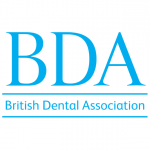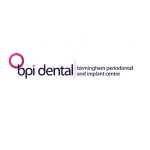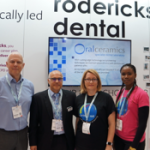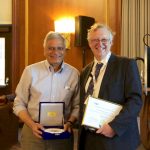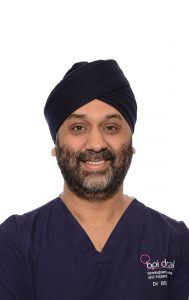
While every effort must be taken to ensure patients receive the best treatment possible, many patients unfortunately do not take such pains over their own health. This can contribute to acute and systemic conditions, or in some cases create complications that could otherwise be avoided. This can create unusual challenges for the team providing dental care.
Oral hygiene
Failure to maintain adequate oral hygiene is the leading preventable factor behind many dental problems. Brushing teeth twice a day is recommended, yet nearly a third of Britons only brush once a day, while a further 1 in 50 don’t brush daily.[1]Dental biofilm bacteria are well established as the main cause of dental diseases, such as gingivitis, when left undisturbed.[2]Patients who brush infrequently are at greater risk of developing carious lesions.[3]Poor oral hygiene has been found to cause as much as a fivefold increase in risk of developing periodontitis, and is likewise the major risk factor for peri-implantitis.[4],[5]
DIY dentistry
While tooth extractions are routine, they are none the less a surgical procedure, and as with any type of surgery are not totally without risk. Complications from a tooth extraction can include bleeding, nerve injury, dry socket and infection.
It’s also unfortunately not unheard of for laypeople to attempt to extract their own teeth and it takes only seconds to find YouTube videos and how-to guides created by members of the public on how to perform extractions and other procedures (questionable methods of tooth whitening, using elastic bands as makeshift braces etc.).[6],[7]
Dental pain can be excruciating and circumstances can sometimes drive people to take pliers to the offending tooth. Because such efforts necessarily take place outside of the system, reporting of this problem is anecdotal in nature, preventing accurate statistics and making it impossible to gauge how commonplace this practice is. Where it does occur, amateur attempts at dentistry can result in the tooth breaking, damage to surrounding teeth, failure to remove the tooth completely, damage to the gums and underlying bone, infection – the potential for complications is enormous. It’s more than likely that patients who attempt their own extractions will ultimately require much more extensive care from a qualified dental practitioner afterwards, if not a visit to the emergency room.[8]
Substance abuse
“Meth mouth” caused by methamphetamines addiction is perhaps the most infamous example of the destruction drug abuse can wreck upon the oral cavity. However, while usage is increasing within Britain, only around one in a thousand people currently abuse meth. Much more commonly seen in the UK is cocaine, with in excess of 3 million people in England and Wales having taken the drug. In Britain, cocaine is the most common and frequently used illegal drug after cannabis, with 6% of 16-24 year olds reporting taking the drug in the past year (which may not reflect the true scale of the problem). While cocaine has increased in availability and decreased in relative cost over time, usage levels are significantly higher among those earning £40,000 or more.[9]
Cocaine can have numerous orofacial effects that can complicate dental treatment. Around 1 in 20 users will develop nasal septum perforation, and more than half exhibit olfactory changes and chronic sinusitis. Cocaine causes vasoconstriction, inducing local ischemia which can in turn cause necrosis of the septum and surrounding tissues (possibly causing gingival lesions in some cases). The hard palate can become significantly perforated, a complication that is substantially more prevalent in female users (80% of cases). Treatment of palatal necrosis requires complete cessation of the drug followed by surgical reconstruction. Cocaine is typically supplied in an impure form, and the substances it has been cut with can cause chemical irritation. Cocaine can also cause adverse reactions to various anaesthetics.[10],[11]
Bruxism is a possible side effect of certain psychoactive substances, both legal and illegal. Alcohol, heavy caffeine use and smoking have all been linked to bruxism.[12]Bruxism has also been associated with some psychological conditions and states of mind, which may lead a patient to self-medicate (depression, anxiety, sleep disturbances, stress, emotional instability, etc.), potentially causing further complications and frustrating efforts to isolate the root cause of the problem.[13]
Anticipating complications
If you are faced with a complex case and need support, working with the team at BPI Dental is a great solution. BPI Dental offers different levels of referrals; from second opinions all the way up to full case referral, we can accommodate you and your patient. Between our expertise and state-of-the-art facilities and equipment, you can have full confidence in our ability to offer the highest standard of patient care and assistance.
Patients are people, with all the potential complicating factors that can entail. As dental practitioners we are limited to treating one aspect of the patient’s health, yet many other factors of their overall wellbeing can create complications within our sphere. Many of these are outside of the patient’s control, while others may well be behaviours that they can address or seek help for. The body is a deeply interconnected system. By understanding the potential ramifications of psychological and behavioural issues upon the patient’s oral wellbeing, we can more readily anticipate certain complications and plan treatment accordingly, ensuring better outcomes for all patients.
For more information on the referral service available from Birmingham Periodontal & Implant (BPI) Dental, visitwww.bpidental.co.uk, call 0121 427 3210 or email info@bpidental.co.uk
References
[1]Smith M. Three in ten Brits only brush their teeth once a day. YouGov.2017. https://yougov.co.uk/topics/politics/articles-reports/2017/10/23/three-ten-brits-only-brush-their-teeth-once-dayMarch 1, 2019.
[2]Larsen T., Fiehn N. Dental biofilm infections – an update. APMIS. 2017; 125(4): 376-384. https://onlinelibrary.wiley.com/doi/full/10.1111/apm.12688March 1, 2019.
[3]Holmes, R. Tooth brushing frequency and risk of new carious lesions. Evidence-Based Dentistry. 2016; 17(4): 98–99.https://www.nature.com/articles/6401196March 1, 2019.
[4]Lertpimonchai A., Rattanasiri S., Vallibhakara S., Attia J., Thakkinstian A. The association between oral hygiene and periodontitis: a systematic review and meta-analysis. International Dental Journal. 2017; 67(6): 332-343. https://www.ncbi.nlm.nih.gov/pmc/articles/PMC5724709/March 1, 2019.
[5]Larsen T., Fiehn N. Dental biofilm infections – an update. APMIS. 2017; 125(4): 376-384. https://onlinelibrary.wiley.com/doi/full/10.1111/apm.12688March 1, 2019.
[6]Omran A. DIY whitening. British Dental Journal. 2017; 223(4): 239. https://www.nature.com/articles/sj.bdj.2017.696March 1, 2019.
[7]British Orthodontic Society. BOS statement: do-it-yourself braces. BOS.https://www.bos.org.uk/News-and-Events/BOS-Statements/BOS-Statement-Do-it-yourself-bracesMarch 1, 2019.
[8]Jadun S., Monaghan L., Darcey J. DIY dentistry: clip-on veneer. British Dental Journal.2018; 224(8): 557. https://www.nature.com/articles/sj.bdj.2018.314March 1, 19.
[9]Home Office. Drug misuse: findings from the 2017/18 crime survey for England and Wales. UK.GOV. 2018. https://www.gov.uk/government/statistics/drug-misuse-findings-from-the-2017-to-2018-csewMarch 1, 2019.
[10]Blanksma C., Brand H. Cocaine abuse: orofacial manifestations and implications for dental treatment. International Dental Journal. 2005; 55(6): 365-369. https://onlinelibrary.wiley.com/doi/abs/10.1111/j.1875-595X.2005.tb00047.xMarch 1, 2019.
[11]Brand H., Gonggrijp S., Blanksma C. Cocaine and oral health.British Dental Journal. 2008; 204: 365-369. https://www.nature.com/articles/sj.bdj.2008.244March 1, 2019.
[12]Bertazzo-Silveira E., Kruger C., Porto De Toledo I., Porporatti A., Dick B., Flore-Mir C., De Luca Canto G. Association between sleep bruxism and alcohol, caffeine, tobacco, and drug abuse: a systematic review. Journal of the American Dental Association. 2016; 147(11): 859-866. https://jada.ada.org/article/S0002-8177(16)30541-4/fulltextMarch 1, 2019.
[13]Kuhn M., Türp J. Risk factors for bruxism. Swiss Dental Journal. 2018; 128(2): 118-124. https://www.researchgate.net/publication/323757336_Risk_factors_for_bruxismMarch 1, 2019.




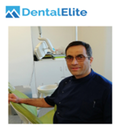

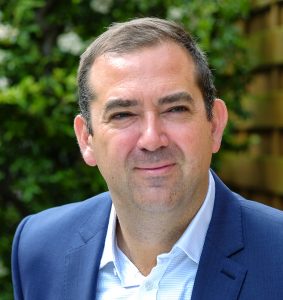 Born between 1946 and 1964, baby boomers form one of the largest segments of modern society. By 2029, the last of the baby boomers will reach the age of 65 and in the next 30 years, these individuals are likely to be those in the greatest need of dental care and treatments to restore, maintain and replace the dentition.
Born between 1946 and 1964, baby boomers form one of the largest segments of modern society. By 2029, the last of the baby boomers will reach the age of 65 and in the next 30 years, these individuals are likely to be those in the greatest need of dental care and treatments to restore, maintain and replace the dentition.


